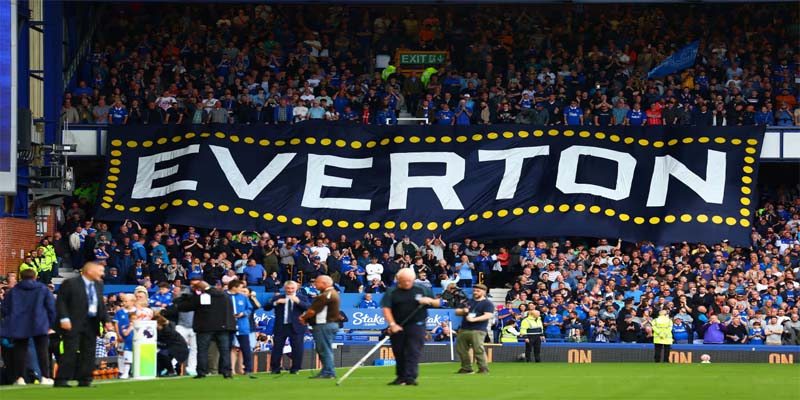Everton Football Club, a name synonymous with tradition and loyalty, stands tall in the world of football. Founded in 1878, the club has not only become an integral part of English football but also boasts a rich history that resonates deeply within its passionate fanbase. The story of Everton Football Club is woven with threads of triumphs, challenges, and an unwavering spirit that continues to inspire generations i9bet
Introduction to Everton Football Club
The journey of Everton Football Club began as a local team representing the community of Liverpool, and over the years, it has evolved into one of the most respected clubs in the Premier League. The passion surrounding the club is palpable—both on and off the pitch—as fans rally fervently to support their beloved Toffees. From the club’s inception to its current standing, the trajectory of Everton Football Club is filled with remarkable milestones that showcase its significance in the realm of football.
History and Development of the Club
Everton FC was established in 1878 as St. Domingo’s FC, initially created for a group of churchgoers who wanted to play football during the winter months. In 1879, the club changed its name to Everton FC, adopting the name of the district in which it resides. This early formation laid the foundation for what would become an illustrious journey in English football.
The club’s first home ground was Anfield, which they shared with rival Liverpool FC until 1892 when Everton moved to Goodison Park. This historic move was a defining moment as Goodison Park became the first stadium in the world built specifically for use by a football club. The proximity of the two clubs and their shared history only served to intensify the rivalry, making Merseyside a hotspot for football enthusiasm.
As the club progressed through the late 19th century, it found success both on and off the field. Under the management of Thomas H. Williams, Everton secured its first league title in the 1890-91 season. This victory marked the beginning of Everton’s ascent to prominence in English football.
With the dawn of the 20th century, Everton Football Club continued to flourish. The team claimed several league titles, establishing itself as a powerhouse in the early decades of the sport. The club’s innovative approach to player recruitment and development played a crucial role in maintaining its competitive edge.
Despite experiencing ups and downs over the years, Everton’s commitment to excellence remained steadfast. The club faced challenges during World War II and managed to adapt, solidifying its place in the post-war resurgence of English football. The re-establishment of league competitions saw Everton once again vying for glory.
Key Achievements in the Club’s History
Throughout its history, Everton Football Club has amassed a remarkable collection of honors. The club has won nine league titles, five FA Cups, and a European Cup Winners’ Cup—a testament to its capability and resilience amid fierce competition. These achievements not only embellish the club’s trophy cabinet but also cement its status as one of England’s most successful football teams.
Perhaps one of the most iconic moments in the club’s history occurred in the 1984-85 season when Everton clinched the European Cup Winners’ Cup title with a stunning victory over Rapid Vienna. This achievement illuminated Everton’s reputation on the continental stage, showcasing its ability to compete against Europe’s elite clubs. The triumph remains etched in the memories of fans and players alike, symbolizing the heights of success achievable by the club.
In addition to winning silverware, Everton Football Club is proud of its long-standing tradition of developing homegrown talents. Many legendary players have donned the blue jersey throughout the years, including the likes of Dixie Dean, Alan Ball, and more recently, Wayne Rooney. Each of these players contributed significantly to the club’s identity and legacy, inspiring countless young talents to follow in their footsteps.
The pride associated with wearing the Everton shirt is evident, and it speaks to the club’s values, ethos, and dedication to nurturing talent. This emphasis on youth development has allowed the club to remain relevant in the ever-evolving landscape of football.
Progress and Improvements in Recent Years
While Everton Football Club has celebrated numerous successes, the past few years have been particularly pivotal for the club. Transitioning into the Premier League era brought both opportunities and challenges. The club has invested heavily in its infrastructure, including significant upgrades to Goodison Park and the plans for a new stadium at Bramley-Moore Dock, reflecting a vision for the future that aligns with the club’s historical roots.
Moreover, the managerial changes over recent years have injected fresh ideas and strategies into the squad. Managers like Carlo Ancelotti brought a wealth of experience and ambition, propelling Everton into a competitive position in the league. His tenure revitalized the team’s aspirations and inspired confidence among fans, creating a renewed sense of belief in the club’s potential.
Additionally, the acquisitions of high-profile players showcased the club’s intent to challenge the status quo. With each transfer window, Everton has sought to strengthen its roster, emphasizing quality signings that can take the team to the next level. This strategy aims to build a squad capable of competing with the giants of English football consistently.
Lastly, the continued engagement with the fanbase has become a priority for Everton Football Club. Ensuring that supporters feel connected and valued has been crucial in fostering a positive atmosphere around the club. Initiatives involving fan consultations, community outreach programs, and inclusion measures have all played a role in uniting the club and its supporters.
Conclusion
Everton Football Club embodies the essence of football, reflecting a rich tapestry of history, passion, and unwavering support. From its humble beginnings in the streets of Liverpool to its current position in the Premier League, the club has faced numerous challenges and celebrated remarkable triumphs.
